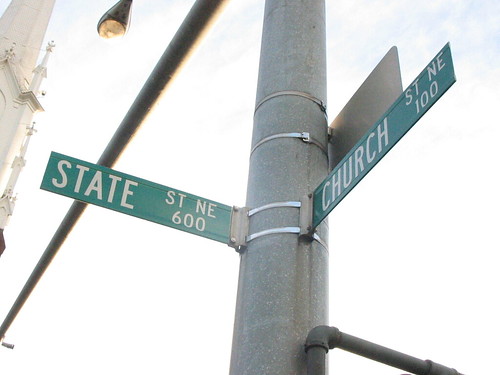I find racists like Derbyshire and Steve Sailer fascinatingly odious to read. The fascination comes from trying to untangle the nuggets of truth and insight from the general stew of confusion and prejudice. This human biodiversity stuff is important, and it's a shame to leave it to right-wing wankers. Somehow, the progressive and sane part of the world will need to grapple with this stuff.
Right now, I just have to pick at a nit that has bothered me for awhile and came up again in Derbyshire's latest, namely, the complete misuse of the concept "psychic unity of mankind":
This idea of the "œpsychic unity of mankind"is a sort of blank slate principle. It says that all human beings everywhere have the same physiological nature, most especially the same brains, and that all observed differences, both group and individual, are the result of "œculture" acting on this infinitely plastic substratum -- writing words on this "blank slate."This is confused in at least two different ways: first, the assumptions that PUM implies that there are no innate physiological differences in brains, and second, that PUM is identical to blank-slate theories of the brain. This is a complete inversion of the concept.
The psychic unity of mankind (PUM) does not mean that human brains are biologically identical. That would, of course, be stupid. PUM means that human brains are constructed in roughly the same way, with the roughly similar biological hardware, computing architectures, modules, built-in capabilities, and areas of functionality. PUM describes the built-in commonalities between human minds and is thus exactly the opposite of the blank-slate model.
Here's Wikipedia on PUM:
In arguing for the "œpsychic unity of mankind," Bastian proposed a straightforward project for the long-term development of a science of human culture and consciousness based upon this notion. He argued that the mental acts of all people everywhere on the planet are the products of physiological mechanisms characteristic of the human species (what today we might term the genetic loading on the organization and functioning of the human neuroendocrine system). Every human mind inherits a complement of species-specific "œelementary ideas" (Elementargedanken), and hence the minds of all people, regardless of their race or culture, operate in the same way.If you've read Pinkers' The Blank Slate, you may remember he presents a list of human universal ideas at the end of the book, as evidence of the non-blankness of the biological mind. These seem almost exactly the same as the Elementargedanken proposed by Bastian.
Richard Shweder (a major cultural anthropologist) Thinking in Cultures, p77: (and note that he is generally skeptical of the notion of psychic unity, but for very different reasons than the race-baiters):
The principle of general psychology that "people are the same wherever you go" does not mean that people are the same in every respect. It means that transcendentally, "deep down" or "inside," where the central processing mechanism lives, people are the same....I see Gregory Cochran makes the same mistake as Derbyshire.
...It is crucial to recognize that the long-lived and imaginative idea of an inherent (fixed, universal) and central (transcendent, abstract) processing mechanism, a psychic unity to mankind, will never be seriously threatened by the mere existence of performance differences between individuals or populations.
Is this just a minor nitpick over the use of a 19th-century phrase? After all, regardless of how you define your terms, recent human genetic selection is either real or not, differences in cognitive capabilities between individuals or races are real or not. But I think this confusion points to something important. The scientific facts are facts and will be revealed in more detail with time, but the moral, social, and political implications of the facts are very much undetermined. Humans will, fairly obviously, be revealed to have some things in common and other things that vary. Whether you want to pay more attention to the commonalities or more to the differences is a political and moral question, not a scientific one.
"All men are created equal" -- the would-be scientific racists like Derbyshire are licking their chops over the prospect that their prejudices will be given the backing of science, and this enlightenment slogan can be thrown under the bus for good. The rest of us should be reinterpreting it in the light of new science. It doesn't mean that everyone has exactly the same innate intelligence any more than it means they have the same height or muscle mass. It means, rather, that we are all built the same way, that we are qualitatively the same despite quantitative differences, that we all have language, consciousness, morality. social skills, social needs, music, concern for kin, and a thousand other similarities.
The left stresses our commonalities; the racist right would like to magnify differences. As a leftist, I'd like to see the our side form a strategy to deal with the facts of human biodiversity; sticking our heads in the sand won't work for very long.


